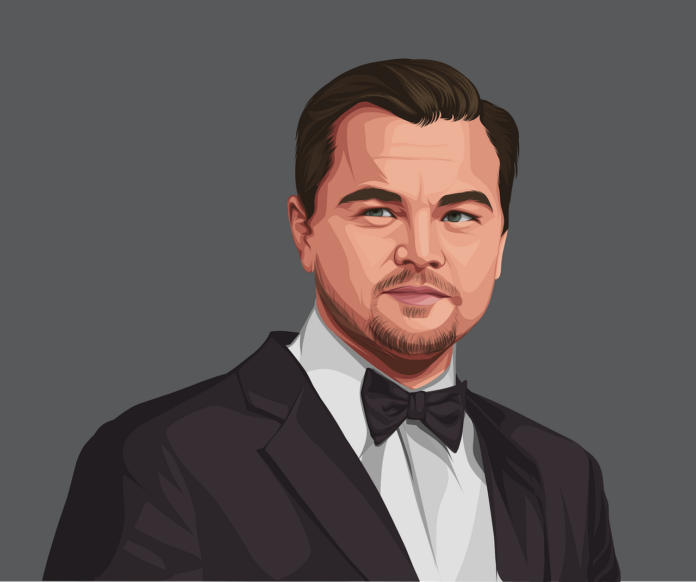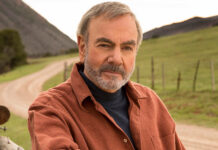Truth is stranger than fiction, and life often imitates art. So today, we look at Hollywood’s fixation with the economy. The world is racked by inflationary pressures, with prices rising all around. But an equally devastating economic phenomenon isdeflation. But before we get ahead of ourselves, what is deflation?
Admirals.com defines a decline in the general price level of goods and services, which can occur when the supply of money falls or the demand for money increases. It can be a severe problem for an economy, as it can lead to a decrease in consumer spending, an increase in unemployment, and a decline in economic growth.
With these economic states in mind, let’s turn our attention to the following list of Hollywood films. They explore deflation’s theme and its impact on individuals and society. From the corrupt and cutthroat world of Wall Street to the aftermath of the 2008 financial crisis, these films showcase the consequences of economic pressures and the role that economic forces can play in shaping our lives.
A Dozen Supercharged Economy-Focused Hollywood Flicks
1. Wall Street – This 1987 film starring Michael Douglas as Gordon Gekko, a ruthless corporate raider, explores the corrupt and cutthroat world of finance on Wall Street. The film highlights the dangers of greed and the consequences of living in a world where the bottom line is the only thing that matters.
2. Wall Street: Money Never Sleeps – This 2010 sequel to Wall Street follows the story of Jacob Moore (Shia LaBeouf), a young trader who teams up with Gekko to take down a corrupt hedge fund manager. The film delves into the aftermath of the 2008 financial crisis and the role that Wall Street played in causing the collapse.
3. The Wolf of Wall Street – This 2013 film starring Leonardo DiCaprio as real-life stockbroker Jordan Belfort tells the story of Belfort’s rise to fame and fortune as the head of a corrupt penny stock boiler room. The film explores the excesses and decadence of the Wall Street lifestyle and the eventual fall of Belfort and his company.
4. Rogue Trader – This 1999 film based on the true story of Nick Leeson, a former derivatives broker who caused the collapse of Barings Bank, highlights the dangers of financial risk-taking and the consequences of greed. The film explores Leeson’s pressure to meet increasingly unrealistic targets and the unethical decisions he made to cover up his losses.
5. Boiler Room – This 2000 film follows the story of a young, ambitious stockbroker, Seth Davis (Giovanni Ribisi), who gets recruited to work for a sketchy brokerage firm. The film exposes the corrupt and fraudulent practices of the firm and the consequences of Seth’s involvement in the scheme.
6. Trading Places – This 1983 comedy stars Dan Aykroyd and Eddie Murphy as a wealthy businessman and a street hustler who are part of a bet to see who can succeed in the other’s social class. The film explores the role that economic circumstances play in shaping a person’s opportunities and the corrupt practices of the wealthy elite.
7. Arbitrage – This 2012 film stars Richard Gere as a hedge fund manager caught in a web of financial and personal lies. The film delves into the high-stakes world of finance and the consequences of cutting corners to achieve success.
8. Assault on Wall Street – This 2013 film follows the story of Jim (Dominic Purcell), a former soldier who takes revenge on Wall Street after losing everything in the 2008 financial crisis. The film explores the anger and frustration of those affected by the recession and the corrupt practices of the financial industry.
9. The Big Short – This 2015 film, based on the true story of a group of investors who bet against the housing market and profited from the 2008 financial crisis, highlights the greed and corruption that contributed to the economy’s collapse. The film, starring Christian Bale, Steve Carell, and Ryan Gosling, is an eye-opening look at the inner workings of Wall Street and financial institutions’ role in the recession.
10. Too Big to Fail – This 2011 HBO film, based on the same name book, tells the story of the 2008 financial crisis from the perspective of the key players involved. The film, starring William Hurt as Treasury Secretary Henry Paulson and Paul Giamatti as Federal Reserve Chairman Ben Bernanke, highlights the behind-the-scenes negotiations and decision-making that took place amid the crisis.
11. The Great Crash – This 1929 film, set during the stock market crash of that year, tells the story of a group affected by the economic downturn. In addition, the film highlights the consequences of speculation and the impact that financial crises can have on individuals and society.
12. Capital in the Twenty-First Century – This 2020 film, based on the book of the same name by economist Thomas Piketty, explores the growing gap between the rich and the poor and the role that capitalism plays in perpetuating economic inequality. The film highlights the consequences of income inequality and the need for systemic change to address the economic challenges of the 21st century.
That’s a Wrap
In conclusion, Hollywood has produced several films exploring the theme of the economy and its impact on individuals and society. From Wall Street and The Wolf of Wall Street, which delves into the corrupt and cutthroat world of finance, to The Big Short and Too Big to Fail, which explore the causes and consequences of financial crises, these films offer a glimpse into the complex and often tumultuous world of economics. Whether they focus on deflation, speculation, or income inequality, these films highlight the importance of understanding and addressing the economic forces that shape our lives.








